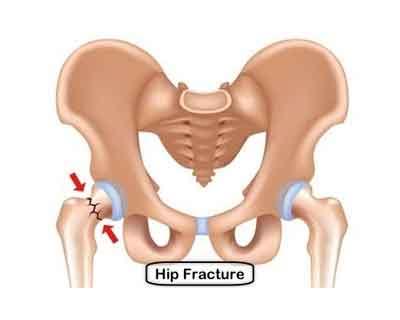- Home
- Editorial
- News
- Practice Guidelines
- Anesthesiology Guidelines
- Cancer Guidelines
- Cardiac Sciences Guidelines
- Critical Care Guidelines
- Dentistry Guidelines
- Dermatology Guidelines
- Diabetes and Endo Guidelines
- Diagnostics Guidelines
- ENT Guidelines
- Featured Practice Guidelines
- Gastroenterology Guidelines
- Geriatrics Guidelines
- Medicine Guidelines
- Nephrology Guidelines
- Neurosciences Guidelines
- Obs and Gynae Guidelines
- Ophthalmology Guidelines
- Orthopaedics Guidelines
- Paediatrics Guidelines
- Psychiatry Guidelines
- Pulmonology Guidelines
- Radiology Guidelines
- Surgery Guidelines
- Urology Guidelines
Quick repair of hip fracture decreases mortality in Elderly

An international team of researchers estimated that 16.5 per cent of in-hospital deaths after a hip fracture could have been avoided if patients had received surgery within 48 hours of checking into the hospital, according to the study published in CMAJ(Canadian Medical Association Journal).
Optimal timing to reduce mortality after hip surgery in medically stable older patients is on the day of admission or the following day, according to a large study.
In Canada, about 30,000 older adults are admitted to hospital each year with hip fracture. They are at increased risk of death, with about 5% of women and 10% of men dying within 30 days. Canadian Health Ministers have set 48 hours from admission as a standard for 90% of hip fracture surgeries. However, the appropriate timing of hip fracture surgery remains a matter of debate, with some research indicating an optimal window of 24 hours.
"Our study was concerned with effects of possible changes in policy for the timing of surgery on mortality in the population of patients with hip fracture in Canada," says lead author, Prof. Boris Sobolev, School of Population and Public Health, the University of British Columbia, Vancouver, BC.
Researchers from Canada, the United Kingdom, and the United States analyzed data from the Canadian Institute for Health Information on nearly 140,000 patients aged 65 years or older who had surgery for a first-time hip fracture at 144 hospitals in Canada (38 teaching and 106 community hospitals). The majority (74%) were women and almost half were older than 85 years.
The authors asked how postoperative mortality would change if the same patient population were to undergo surgery on the day of admission, on inpatient day 2, day 3, or after day 3, as would be done in a randomized trial. Previous studies had, in contrast, compared mortality among patients with various observed times to surgery.
The authors project an additional 11 deaths for every 1000 hip fracture surgeries if all surgeries in medically stable patients were done after inpatient day 3 instead of on admission day.
"Our findings allow us to infer a critical point for the timing of hip fracture repair. We suggest that clinicians, administrators, and policy-makers 'not let the sun set twice' on medically stable older adults before their hip fracture repair," says Dr. Pierre Guy, an orthopedic surgeon and a principal investigator in this study.
"We estimate that 16.5% of in-hospital deaths currently occurring in patients delayed for more than two days are avoidable by adopting the 'don't let the sun set twice' policy for hip fracture patients," he says.
The "two sunsets" recommendation is stricter than the current 48-hour standard and places the emphasis of managerial efforts on ensuring timely access to the operating room for patients whose surgery might be delayed due to late admission or hospital transfer.

Disclaimer: This site is primarily intended for healthcare professionals. Any content/information on this website does not replace the advice of medical and/or health professionals and should not be construed as medical/diagnostic advice/endorsement or prescription. Use of this site is subject to our terms of use, privacy policy, advertisement policy. © 2020 Minerva Medical Treatment Pvt Ltd